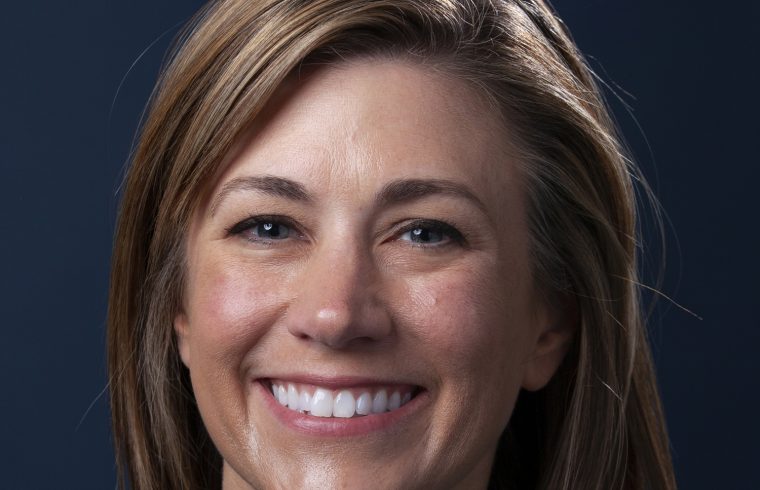Doctors, major health groups and concerned parents reacted with shock and gratitude to the Trump administration’s surprise announcement Wednesday that it plans to ban flavored electronic cigarettes.
Now health experts are eager for the administration to follow through on its promise as quickly as possible.
“The FDA should not further delay steps to protect the public health and to prevent the next generation from becoming addicted to tobacco products,” Harold Wimmer, national president of the American Lung Association, wrote in a statement.
“The problem we’ll have is youth who are already addicted. Are they going to move to other products? Are they going to use the tobacco-flavored products? We really don’t know,” said Bonnie Halpern-Felsher, a professor and expert in teen vaping at Stanford University.
Those in public health have long said e-liquid flavors, like cotton candy and gummy bear, attract teens.
“We know that flavors is the No. 1 reason why youth are interested in starting,” said Halpern-Felsher. “They start for the flavors, and they continue because of the nicotine.”
The HHS announcement comes in the midst of a growing and worrisome national outbreak of respiratory illnesses linked to vaping that has claimed six lives so far.
Teen vaping
There’s no question that teen vaping has surged in popularity since e-cigarettes first hit the U.S. market in 2006.
From 2011 to 2015, e-cigarette use among high school students skyrocketed 900 percent, according to a Surgeon General report.
From 2017 to 2018, the CDC reported e-cigarette use among high school students rose 78 percent.
By 2018, 3.6 million kids under age 17 were using e-cigarettes, according to the FDA.
Preliminary data from 2019 appears to have been a factor in Wednesday’s announcement. The Department of Health and Human Services reported that more than a quarter of high school students in 2019 admitted to using e-cigarettes, and the majority cited the fruity and minty flavors.
Halpern-Felsher told NBC News at least a third of kids who vape use minty flavors.
They start for the flavors, and they continue because of the nicotine.
“We intend to clear the market of flavored e-cigarettes to reverse the deeply concerning epidemic of youth e-cigarette use that is impacting children, families, schools and communities,” said Health and Human Services Secretary Alex Azar in a statement Wednesday.
HHS officials said they would release details about the plan in the coming weeks. It’s unclear whether a ban will include online sales as well as purchases made in brick and mortar stores.
Experts expect a ban on e-cigarette flavors will drastically decrease the number of kids who start vaping.
The American Academy of Pediatrics called Wednesday’s announcement a “major step” toward reversing what it calls a “public health emergency.”
“Pediatricians have been raising alarm with increased urgency about the toll of e-cigarettes on their teenage patients, which ranges from wheezing and coughing to compromised lung function, asthma exacerbation and most recently, to seizures, respiratory distress and death,” Dr. Kyle Yasuda, president of the American Academy of Pediatrics, wrote in a statement.
The Food and Drug Administration has tested 120 vaping product samples, and so far has been unable to identify any one brand, ingredient or substance that could explain the recent spate of illnesses.
To date, there are 496 confirmed or suspected cases in 42 states, plus the U.S. Virgin Islands. The number of cases is expected to continue to grow as awareness of the problem grows.
It’s unclear if banning flavored e-cigarettes will have any effect on the outbreak.
There are no nicotine replacement therapies approved by the FDA for kids under age 18, though some doctors do prescribe them off-label.
Organizations are starting to implement programs designed to get kids off nicotine.
Truth Initiative, a nonprofit organization that advocates for tobacco cessation, has set up an anonymous e-cigarette cessation program. So far, 50,000 teens and young adults have enrolled.
Parents whose kids have struggled with e-cigarette addiction have been waiting for this move.
Meredith Berkman, co-founder of Parents Against Vaping E-cigarettes (PAVE), has been vocal about the dangers of flavored e-cigarettes since discovering her teenage son, Caleb, was one of the rapidly growing number of kids vaping. The two now work to educate other youth about vaping and addiction.
Focus quickly pivoted from the flavors to helping kids already heavily addicted to nicotine.
“In this moment, we are really grateful,” Berkman said. “Now let’s bring it on home, get these things off the market, and then we’ll begin to deal with the consequences of the youth vaping epidemic.”
Follow NBC HEALTH on Twitter & Facebook.












